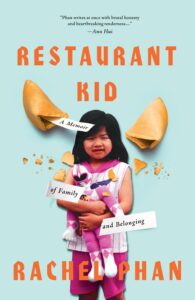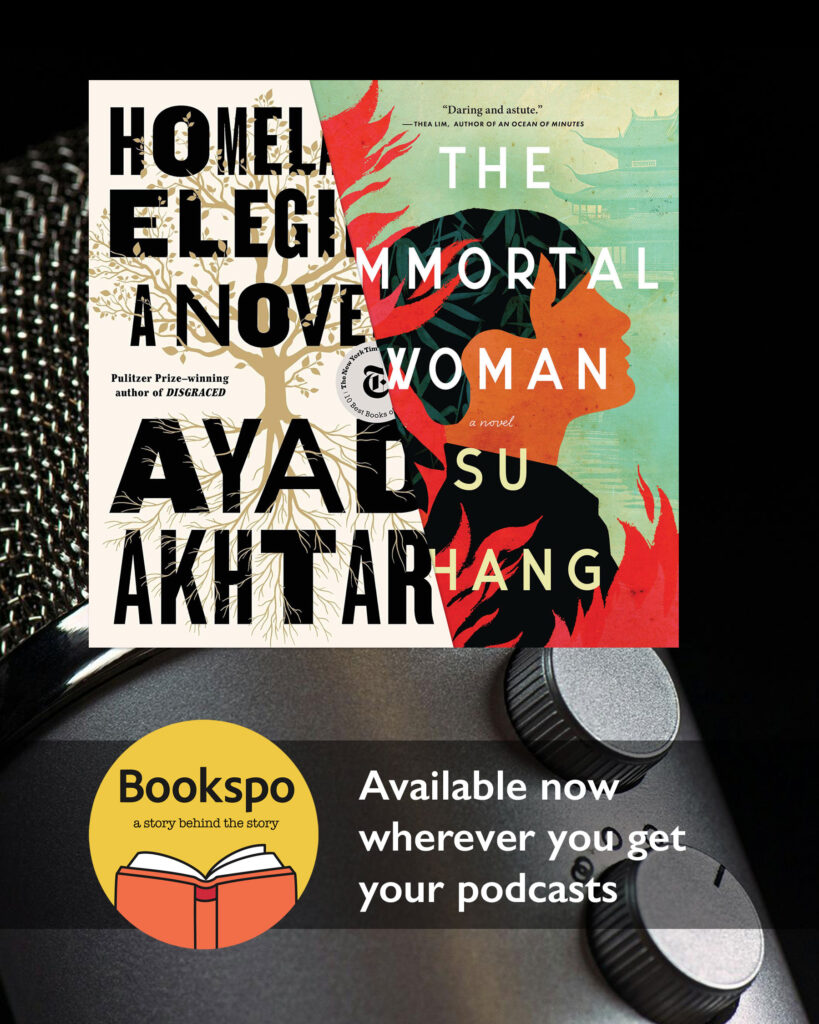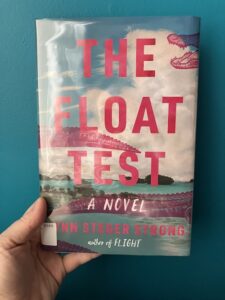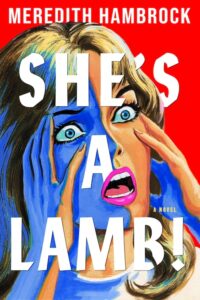May 5, 2025
The Cost of a Hostage, by Iona Whishaw
For the last few years, I’ve looked forward to a new Lane Winslow mystery novel in the spring like I’ve looked worked to forsythia blooms and cherry blossoms, and just like spring herself, author Iona Whishaw has never failed me. The Cost of a Hostage is the twelfth instalment in her series about the brilliant polyglot whose wits are only matched by her beauty and whose desire for a quiet life in the small community of Kings Cove, outside Nelson, BC, is thwarted by her tendency to stumble upon dead bodies and wander into crimes in progress. Thankfully, however, nobody is better equipped to solve these crimes, much to the chagrin of local Police Inspector Frederick Darling, who eventually becomes Lane’s husband. Which means he often finds himself in fixes like the one that kicks of this latest novel: Darling’s brother has gone missing in Mexico, and has perhaps been kidnapped; is there any possibility that Darling can get to Mexico without convincing his dear wife that she’ll be just fine staying at home? The answer is, of course, no, and so off they go, which Darling is not exactly sorry for. Lane Winslow is surprisingly useful to have around, and besides he likes her company. Their marriage is a rare and beautiful thing in the late 1940s, an arrangement of equality, both partners ardent in their admiration and respect for each other’s keen intelligence (though Darling would admit that Lane’s is the keener one).
Anyway, staying home might not have been so quiet either, after all. When a small boy is kidnapped in Nelson, the circumstances are curious, and Ames and Terrell, running the Nelson Police Department in their boss’s absence, have their hands full solving the crime, especially once their chief suspects turns up dead in the local ferry’s paddle-wheel.
Once again, Whishaw brings her readers a story with fascinating moral complexity and a healthy dose of feminism and progressive values. And yes, just enough peril that you’ll be totally gripped.
April 30, 2025
Next Up from Carol Shields
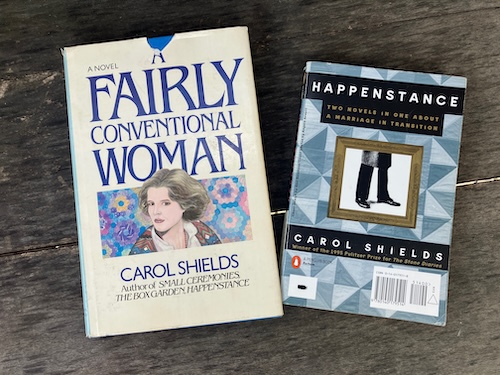
My Carol Shields reread continues to be very rewarding. And especially with her third and fourth (and kind of fifth) novels, which is where her novel writing really began to find its stride. While I enjoyed rereading Small Ceremonies and The Box Garden, especially for the Carol Shields-ness at the core of them, I could discern the effort it took to structure these books, like a kind of scaffolding beneath the surface. But with Shields’ third book, Happenstance, there is nothing but the art itself. Like, the training wheels are off, and there she goes, and this woman knows exactly what she’s doing now. And she’s going to keep on doing it—this is what also amazes me about these early books, the threads and preoccupations that will be picked up through the next two decades of Shields’ literary career.
If you buy a copy of Happenstance now, you will likely be purchasing the version of the book which is subtitled, “Two novels in one about a marriage in transition.” One side of it is Jack Bowman’s story, originally published in 1980 as Happenstance, and then flip it over to the over side to read a novel from the perspective of his wife, Brenda, published in 1982 as A Fairly Conventional Woman. As a Shields’ completist, I’m still looking out for an original edition of the former, but I found a first edition of the latter a couple of years ago that I was delighted to read this time. I’ve read both those books before, but don’t remember very much about them. As I’ve said with every Shields’ book I’ve reread so far, I don’t know that they’re written to be properly understood by anyone under the of 30. And it’s curious and interesting to be reading them now in my mid-40s, just a tiny bit older than her protagonists, just a little bit older than Shields was herself when she started to publish her fiction. In some ways, it almost feels like I’m meeting this author I’ve loved since I was young for the very first time.
I imagine that when I read the double version of Happenstance, I read Brenda’s story first, just because women’s stories are usually more interesting to me. But this time, because chronology, I started with Jack, and I actually think it’s a better novel than Brenda’s. I assume Shields wrote it first and Brenda’s later, which might explain it—the material was more fresh for me, she was inventing instead of filling in gaps and picking up threads. It’s also, counter-intuitively for a husband’s story, more concerned with the domestic, as it’s about Jack at home with his children while Brenda is on a trip to Philadelphia, and domestic details are always most interesting to me. All of my favourite books are about people at home.
When I interviewed the author Jenny Haysom about Carol Shields on my podcast last fall, I’d remarked that her novel Swann was something of a departure for her, being more concerned with academia than the domestic, but my rereading has proved that I was wrong wrong wrong. All Shields’ protagonists so far have been academic wives with connections to academia themselves—Charleen in The Box Garden ekes out a living editing a botanical journal affiliated with the academic institute her ex-husband was part of; her sister Judith, in Small Ceremonies, is a biography married to a university professor; and now Jack Bowman works as an administrator for “The Great Lakes Research Institute,” not an academic himself, just with an undergraduate degree, though he has been struggling to finish his book about Indigenous trading practices for years. (He’d met his wife, Brenda, when she’d been working at the Institute doing typing and filing, just out of secretarial school.)
It’s funny because I remember, when Larry’s Party was published in 1997, that there had been conversation about Shields turning her attention to the details of masculinity after The Stone Diaries, but Happenstance makes clear that the details of masculinity had been her concern for a long time. (There is also a character in it called Larry.) And such details also have not changed substantially in the 45 years since Happenstance was published. There is a lot of talk these days about manhood, and men’s relationships, and male loneliness, and Happenstance taps right into all of this. Every Friday, Jack Bowman has lunch with his friend Bernie (his one good friend, Bernie; “his one friend, Bernie?;”There must be a measure of failure, Jack supposed, in the admission that he had gone this far in his life, forty-three years, and achieved only one friendship”), an arrangement going back twenty years, the two of them choosing an all-encompassing topic (this year it’s “history”) and spending their time getting to the bottom of it.
Happenstance is a novel about ideas, about history, about time, about beginnings and endings. Its grasp of its current moment—Russian dissidents and Middle East ceasefires—reads very close to our own. As with Shields’ first two books (and everything she ever wrote?), it’s about the limits to what spouses can know and understand about each other. Also, like everything Shields ever publishes, it’s about what gets to considered important, entered into written record. (Which will bring us to Brenda’s story, but just a moment…)
The one part of this novel that is curious and possibly dated is a story line in which Jack’s eldest son seems to have partaken in a fast, echoing political hunger strikers who are currently in the news. It recalls the daughter in Shields’ last novel, Unless, who takes up residence on a Toronto street corner holding a cardboard sign that says, “Goodness.” This is unfathomable and heartbreaking to her parents, while Jack, in Happenstance, isn’t ruffled by it. He ends up talking to a doctor who tells him that Rob can live without food for a while, he’ll be fine. And then Rob’s younger sister is similarly inspired, and Jack decides that this is good news, because Laurie’s a bit fat anyway, and maybe this will finally be the end of that.
A weird note for sure, and the one on which A Fairly Conventional Woman begins. It’s the same Friday morning on which Jack’s story starts, and Brenda is making breakfast for her husband and children, but she will eat nothing herself. “She is watching her weight, not dieting, just watching. Maintaining.” And then a line about how she’s watching Laurie too, whose jeans no longer fit. Will Brenda too be relieved that their chubby daughter has taken up fasting? Brenda is slim, we know, although (and note that connections between these two ideas are never explored) her mother had been a size 22, and made all her own clothes. All of this making me think about The Stone Diaries, which begins with Daisy’s magnificently fat mother, and clearly fatness too (and maintenance!) had been a preoccupation for Shields, though ideas around bodies and fatness have changed so much since the 1990s, I can’t imagine how those parts of The Stone Diaries will read when I get to it. (Though I am sure that not so much has changed that there won’t be parents out there somewhere relieved that their fat daughters have taken up fasting…)
Anyway, Brenda—a daughter, whose mother sent her to secretarial school, where she’d get the job where she’d meet the man who’d make her a wife—has lately taking up quilting, and it turns out she’s got a talent for it, and she’s invited to appear at a crafts convention where her work will be displayed. Finally, a something of her own, even though it’s a craft, instead of art—and the relegation of the former is made clear when the crafters are made to play second tier to a convention of metallurgists. One of the most fascinating parts of the book are chapters entirely in dialogue by Brenda’s peers at the convention. There’s also a wonderful scene where she buys a raincoat that’s far too expensive, but that she covets, and it reminds me of that scene in Unless (which also appears in an earlier short story) where a character buys a scarf, how a thing can satisfy. (Jack Bowman has doubts about thinginess in Happenstance, however. It’s what makes him suspicious of Brenda’s pursuits. He fancies himself as a man of ideas, elevated above mere objects.) AFCW is about women wanting, or how they don’t want often enough, their desires so often subservient to the needs and desires of others. The reader realizes that Jack Bowman is really wrong about his beloved wife’s inner life.
“What [Jack] didn’t seem to grasp (as Brenda did) was that history was no more than a chain of stories, the stories that happened to everyone and that, in time, came to form the patterns of entire lives, her own included.”
April 30, 2025
Teach Your Children Well
Hey, moms and dads! You sure aren’t telling your kids about the abortions that made your family lives possible, eh?
Because if you were, your kids would be wise enough not to cast their student votes for a party whose members are chomping at the bit to crack down on reproductive freedom.
We can do better than this, especially if we want to ensure our children grow up with the reproductive rights that we did.
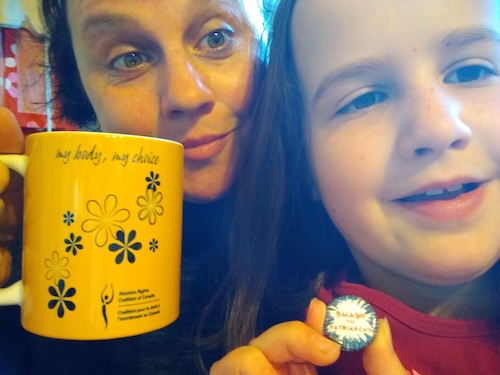
April 28, 2025
Magnolia

Every year since my children started school, which is 13 years now, I’ve spent the winter walking past this magnolia tree with the line from Barbara Reid’s Picture a Tree running through my head: “Every winter tree holds spring sleeping like a baby.” Every year, the people with the gift of this tree in their garden decorate the tree with baubles at Christmas, and leave the decorations up long after the holidays are over, which I don’t mind a bit, because there’s something about silver reflecting a rare sunbeam against a blue sky amidst February’s gloom, which the kind of thing that gets me through winter. The buds on this tree are a promise, one I’m counting on, and every year it happens. I remember going out of our way during the two springs my children’s schools were closed on account of the pandemic just so we wouldn’t miss it, en-route to pick up take-out, which was pretty much life’s highlight at that point. In addition to spring.
Things bloom, which has never stopped being a miracle. What a thing to share the world with trees that make flowers like this, how extravagant and just wild.
April 24, 2025
Restaurant Kid, by Rachel Phan
I was expecting…less?…from Rachel Phan’s memoir, Restaurant Kid. The story of growing up Chinese in a small town in Ontario, the experience of having the family business be the centre of domestic life, what it’s like having immigrant parents who give everything to their jobs in order to make enough money to give their children the kind of life they couldn’t have imagined growing up in in wartime Vietnam. I wasn’t expecting a memoir quite so intimate, so personal, and all-encompassing, but then I realized that this was the point—that where she came from would define everything for Phan. How she felt about her Chinese identity as a child in a community where racism was ordinary, how her parents were too busy to give her the attention she desired from them and so sought it elsewhere, how stereotypes of Asian woman would be part of her early sexual experiences, how her parents’ story would underline her own relationship with money and finances, and more. Restaurant Kid is capacious enough to hold Phan’s anger and resentment at some of her parents’ choices, but also her extraordinary love for them, and the sacrifices they made to give their children a life in Canada. I loved the whole book, but a particular highlight is the epic trip she takes to Vietnam with her parents once she’s in her 30s and her parents can afford to take time away from the business (which her brother runs now, a complicated inheritance, as most inheritances are). In Vietnam, she has the opportunity to see a different side of her parents, being at ease in their native tongue, at home and familiar even in this place that holds so many traumatic memories, and her ability to hold them and love in them in all their messiness and complexity is so extraordinarily moving. Which a rich and brilliant book.
April 18, 2025
The Float Test, by Lynn Steger Strong
I don’t know if The Corrections started it, but for a long time now, all books about unhappy families have been alike in a similar way. Grown children returned to the nest, long simmering secrets and resentments, neuroses and addictions, third person narratives moving between different perspectives, the inevitable blow-up, but THE FLOAT TEST felt like something different. It felt like more of a narrative tangle, a knot. The narrator is Jude whose mother has just died, a difficult and demanding woman, and part of the narrative trajectory is Jude and her three siblings unpacking their relationship with her, the cutting edge of her affection and attention. Although Jude does not make herself the centre of the story, that place belonging to her older sister Fred, whose story Jude “imagines herself into,” portraying moments and incidents she would not be party too. Which is interesting, because Fred is the storyteller in the family, a novelist who has helped herself to bits and pieces of other people’s lives, her family included, scattering these throughout her fiction, and also something has happened between Fred and Jude that isn’t clear. And the backdrop to all of this is Florida, where the family comes from, and to where Fred and Jude both have been loathe to return, where the vultures are circling, the hottest summer ever so everyone is dripping with sweat, and swimming is the only respite—the novel’s title comes from the test that Jude and her siblings were never able to pass because their talent has always been for striving, moving, winning, instead of stopping, floating, being. And there is something suspended about the narrative too, all of the siblings stranded in the in-between in various ways, except for these absolutely wrenching moments that hit on the complicated nature of love, how it can be riddled with pain, the impossible gnarl that is family and history and that place from which we come.
April 17, 2025
I like the way the world waits for you

I’ve had a hard season, one whose heaviness I didn’t wholly recognize until the weight was gone. And throughout it all, my Thursday mornings with Singing Mamas have been one essential thing that kept me going, the sacredness of that space, the songs, that light. About three weeks ago, it occurred to me that this this was the first time I’d been attending the group and really felt genuinely joyous, as opposed to joy that was instead a brief respite from darkness and pain (which is not to say that such respite didn’t mean everything).
It’s curious to be showing up and know that I look the same, and that gorgeous light is just the same, and all those songs are just the same, but everything is different.
I like the way the world waits for you, that it’s possible to meet us where we’re at.
I’m very sleepy today after a later-than-usual night last night picking up my kid at her semi-formal, which happened to be her first school dance. She should have had her first school dance in 2021 as part of her Grade 6 graduation, and all such festivities were cancelled that year, along with so many other things, on account of the pandemic, and so it felt extra special that she had such a good time last night. Her younger sister is now the same age she was that year, when her class’s end of the year school trip was also cancelled (don’t worry—she’s had plenty of end-of-the-year trips since then!) and just yesterday we received the permission form for her sister’s trip, and it feels extra special to have this finally happening, the sort of thing I could possibly have been compelled to take for granted, but now I never will. We’re all so excited for her. (I feel like I’ll be tripping over pandemic losses and trauma for the rest of my forever.)
But still, I’m sleepy, and so when I went swimming today, I got in the medium lane and went so slow. Slow and easy, slow and easy, and I like this about swimming too, how it can meet you where you’re at. Just like the light in the room where we sing.
April 16, 2025
She’s a Lamb!, by Meredith Hambrock
Jessamyn St. Germain is bound for greatness, and her confidence is unshakable. Even though the discerning reader will swiftly note the gap between her self-perception and how the world receives her in Meredith Hambrock’s second novel, SHE’S A LAMB! (the title taken from a lyric in THE SOUND OF MUSIC’S “How Do You Solve a Problem Like Maria,” “She’s a darling! She’s a demon! She’s a lamb!”).
Instead of receiving a role in a regional production of the famous Rodgers & Hammerstein musical, Jessamyn is offered the job of childminder for the show’s youngest actors, an offer she suffers with indignation until it occurs to her that it’s an opportunity in disguise, that surely the director has little faith in the actress playing Maria and needs to keep Jessamyn nearby so she can step into the role when the time arises and finally have her moment in the spotlight.
SHE’S A LAMB! has been compared to the novel MY YEAR OF REST AND RELAXATION for its portrayal of a heroine so stuck up on in her own head that she’s disconnected from the world around her, although I liked Hambrock’s novel so much more for its character’s fierce and ferocious need and desire. There is no such thing as rest or relaxation for Jessamyn, whose singular pursuit of her goals leads her down dangerous paths and is going to end up with a body count.
On one level, SHE’S A LAMB! is a very dark comedy of the absurd in which Jessamyn is willing to do anything to make her dream come true—and get rid of anyone in her path in the meantime. With remarkable restraint, Hambrock leans away any possibility of redemption and focuses her narrative just as narrowly as Jessamyn herself has on her own possibilities. The result is hilarious, ridiculous, creepy and chilling at once.
And chilling most of all for the parts of it that seem most familiar. While Jessamyn never doubts herself, she knows that everybody else around her wonders about their own talent, their own potential, their own destiny. ‘”You don’t know,'” she tells the actress playing Maria, the role she covets, undermining her confidence. ‘”You wish. You hope. But you don’t know. You can’t know. You can never know.”‘
It’s a terrifying message that will ring true for anyone who ever wanted to be anything.
April 14, 2025
Back for More!

The hardest working shirt in my drawer is the House of Anansi 45th anniversary tee that I’ve been wearing since 2012, including through an entire pregnancy, which means it’s stretched and misshapen and these days mainly gets worn to bed, but it’s a great shirt, and now that I’m a House of Anansi author (hooray!), I’m awfully glad that I held onto it. I’ve always been partial to House of Anansi, especially since they moved their office into a former pickle factory, which absolutely on par with my sensibilities.
Definitely Thriving, my fourth novel (!), will arrive in the North America in March 17. It’s a novel I started writing in 2021 when the world was bleak and scary and I was desperate for a diversion. It’s an ode to friendship, community, and unsuitable attachments, in addition to being a tribute to Barbara Pym, with my protagonist, Clemence Lathbury, imagined as a modern day Pym heroine. The story begins when Clemence blows up her marriage and returns to her hometown determined to redeem herself by building a sensible life from scratch. Not for her will be the scrapes and schemes of a Bridget Jones-era heroine, instead she resolves to be a stalwart, one of the excellent women of Pym’s mid-century novels. But no woman is an island, and soon Clemence is tied up in all kinds of neighbourhood shenanigans, and drama ensues. There’s a book shop, a church jumble sale, and a one-eyed cat named Bailey who is actually a real cat belonging to my friend Erin. I’m so excited for readers to meet Clemence and her people (and the cat).
If you’ve been paying attention, you will know I struggled a lot after the publication of my previous novel, and that this whole newsletter/podcast project was born out of my desire to climb out of the creative low in which I’d found myself at that point. I’m interested in what it will be like now to head into publication with the new awareness I’ve acquired since working through some of these issues (who knew that my literary success does not actually hedge on making everybody love me, or that loving me is actually an unreasonable thing to ask of everybody) and avoiding the trap of imagining that now that I’ve got no expectations, this is the moment where all the success I’ve been hoping for will finally unfold.
All along I’ve been looking for redemption. It took me ten years after completing my Creative Writing Masters Degree to finally publish my first novel—and here, I imagined, was the moment where the magic would begin. But that novel was not a success. And then I got a second chance—aha, my heroic sophomore book! But that book didn’t do well either, and neither did my next book, and I started to understand that maybe the story wasn’t going to go like that. That in publishing there’s never a happy-ever-after (alas, the one good thing about never having achieved great success is that at least no one expects the impossible task of replicating it! Phew!). I even started to wonder what the point was in publishing books after all, because it certainly wasn’t doing anything like making me happy or feel good about myself. When I wasn’t sure I’d be able to publish another novel, I started to consider a possible upside to not having my self-esteem decimated every couple of years.
But oooh boy, I’m back for more. And I’m even grateful and lucky to be able to say that, I know, and I’m looking forward to sharing this novel with you, and I’m also anticipating an interesting experiment in releasing a book and not losing my mind.
Is it possible? I will keep you posted!
This post was first published in my Enthusiasms Newsletter. If you’re not signed up yet, please subscribe!

